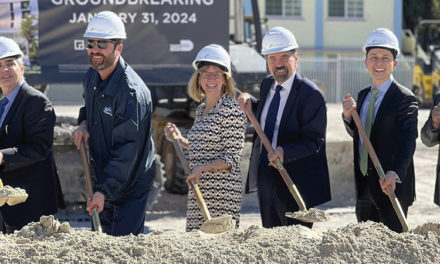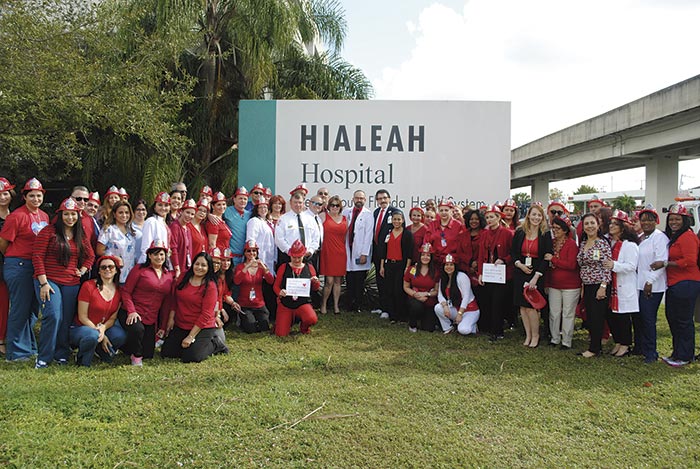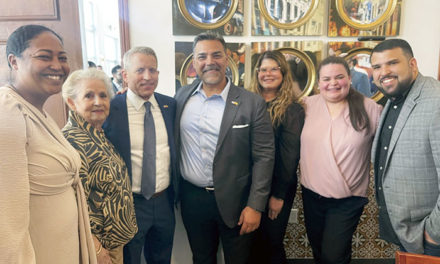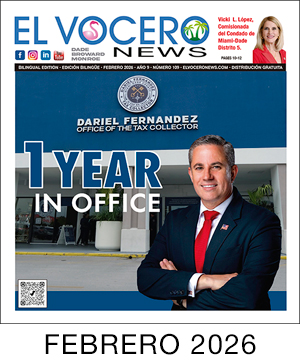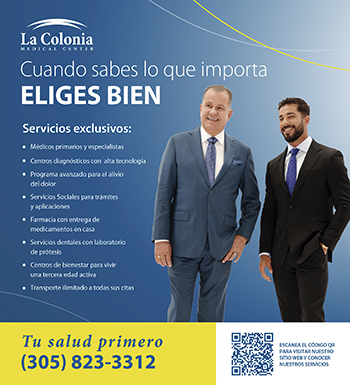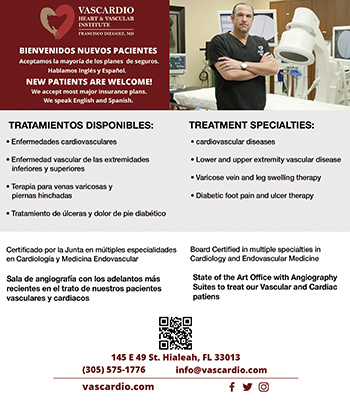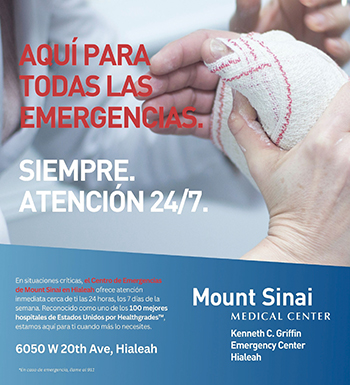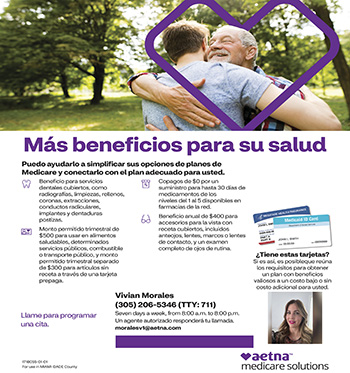By Jesús Hernández
Born in New York, raised partly in Latin America, and graduated from university with degrees in psychology, law and social work, Miami-Dade County Mayor Daniella Levine Cava seeks to be reelected for a second term.
The primary election will be held on August 20th.
-How do you summarize your tenure as the mayor of one of the most important counties in the Nation during difficult years?
We’re almost 3 million residents. We’re under a huge operation, and we have recovered from the pandemic to be the most recovered economic county in the country. We have done an excellent job dealing with many of the challenges, but we have many, many challenges still. And I’m very hopeful to earn four more years to continue the important work we’ve done.
-Affordable housing, public transportation, and the environment have been key issues in your term as Miami-Dade Mayor
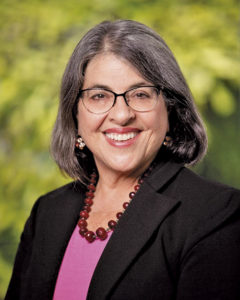 We are truly in an affordability crisis. In 2022, I addressed that by declaring a state of emergency for housing. We have New York prices without New York salaries, and we have invested many millions of dollars in affordable housing, more than before. We have 32,000 units of affordable and workforce housing in the pipeline. We prevented almost 27,000 evictions. We’ve also helped people living in condominiums when the special assessments come due. People don’t have those savings to pay for the repairs, and we’re providing loans of up to $50,000 per household for 30 years with zero interest for people making all the way up to 140% of our area median income. Traffic has certainly gotten worse, and the only solution is public transportation. The South Dade Transitway is set to open within the year. We’re proceeding with the plans for local stops and commuter service on the Northeast Corridor. We are nearing completion of studies for the North Corridor up 27th Avenue to the Hard Rock Stadium. And we’ve added express bus lanes on 836 with more buses and have had to increase bus service there because of the demand. Miami-Dade is one of the only places in the country where public transportation is growing. And our environment is essential to our health and our quality of life. I have been very passionate and dedicated to helping to reduce our carbon, which helps to bring down climate change, to reduce pollution, to keep our bay clean and to protect our water system.
We are truly in an affordability crisis. In 2022, I addressed that by declaring a state of emergency for housing. We have New York prices without New York salaries, and we have invested many millions of dollars in affordable housing, more than before. We have 32,000 units of affordable and workforce housing in the pipeline. We prevented almost 27,000 evictions. We’ve also helped people living in condominiums when the special assessments come due. People don’t have those savings to pay for the repairs, and we’re providing loans of up to $50,000 per household for 30 years with zero interest for people making all the way up to 140% of our area median income. Traffic has certainly gotten worse, and the only solution is public transportation. The South Dade Transitway is set to open within the year. We’re proceeding with the plans for local stops and commuter service on the Northeast Corridor. We are nearing completion of studies for the North Corridor up 27th Avenue to the Hard Rock Stadium. And we’ve added express bus lanes on 836 with more buses and have had to increase bus service there because of the demand. Miami-Dade is one of the only places in the country where public transportation is growing. And our environment is essential to our health and our quality of life. I have been very passionate and dedicated to helping to reduce our carbon, which helps to bring down climate change, to reduce pollution, to keep our bay clean and to protect our water system.
-You´re proposing a historic 12.698 billion dollars for the fiscal year 2025 county budget
Federal dollars that came with the American Rescue Plan and other federal programs are running out. We also have five constitutional offices coming: the sheriff, the tax collector, the election supervisor, the clerk, and the property appraiser, which were separate, but they are becoming even more separate. Those five offices require funds to establish them as independent. We have to be very conservative this year in not spending money that we might need to use for those challenges. We are proposing not to reduce the property tax rate, as we were able to do in the last two years, which was the lowest tax rate since 1982. It would not be prudent to propose another property tax cut. If we were to cut taxes, we would have to look at cutting our law enforcement, our parks, our roadways, various things that people really depend upon.
Alcaldesa Levine Cava: “Somos el condado con mayor recuperación económica del país”
Por Jesús Hernández
Nacida en Nueva York, criada en parte en América Latina y graduada universitaria en psicología, derecho y trabajo social, la alcaldesa del condado de Miami-Dade, Daniella Levine Cava, apuesta por ser reelegida para un segundo mandato.
La elección primaria se llevará a cabo el 20 de agosto.
– ¿Cómo resumiría su gestión como alcaldesa de uno de los condados más importantes de la Nación durante años difíciles?
Somos casi 3 millones de residentes. Llevamos una operación enorme y nos hemos recuperado de la pandemia para ser el condado con mayor recuperación económica del país. Hemos hecho un excelente trabajo al enfrentar muchos desafíos, pero todavía tenemos muchos, muchos desafíos más. Y tengo muchas esperanzas de obtener cuatro años más para continuar el importante trabajo que hemos realizado.
-La vivienda asequible, el transporte público y el medio ambiente han sido temas clave en su mandato
Sufrimos una crisis de vivienda asequible. En 2022, abordé ese problema declarando el estado de emergencia para la vivienda. Tenemos los precios de Nueva York sin los salarios de Nueva York y hemos invertido muchos millones de dólares en viviendas asequibles, más que antes. Tenemos en proyecto 32,000 unidades de viviendas asequibles. Evitamos casi 27.000 desalojos. También hemos ayudado a personas que viven en condominios y tienen que cumplir con las evaluaciones estructurales. La gente no tiene esos ahorros para pagar las reparaciones, y estamos otorgando préstamos de hasta $50,000 por hogar sin intereses por 30 años para quienes que ganan hasta el 140% del ingreso medio del área. Ciertamente el tráfico ha empeorado y la única solución es transporte público. El corredor de South Dade se inaugurará en menos de un año. Seguimos adelante con los planes para crear paradas y proveer servicio de pasajeros en el Corredor Noreste. Estamos a punto de finalizar los estudios para el Corredor Norte por la Avenida 27 hasta el Estadio Hard Rock. Y hemos agregado carriles para autobuses expresos en la autopista 836. Hemos tenido que aumentar el servicio de autobuses allí debido a la demanda. Miami-Dade es uno de los únicos lugares del país donde el transporte público crece. Y cuidar el medio ambiente es esencial para nuestra salud y nuestra calidad de vida. He sido muy apasionada y dedicada a reducir el carbono, lo que ayuda a reducir el cambio climático, reducir la contaminación, mantener limpia nuestra bahía y proteger nuestro sistema de aguas.
-Usted propone un presupuesto histórico de 12.698 millones de dólares para el año fiscal 2025
El dinero del Gobierno federal, que vino con el Plan de Rescate Estadounidense y otros programas federales, se está agotando. También tenemos que encaminar cinco nuevas oficinas constitucionales: el sheriff, el recaudador de impuestos, el supervisor electoral, el secretario y el tasador de propiedades, que estaban separados, pero estará aún más separadas. Esas cinco oficinas requieren fondos para establecerse como independientes. Tenemos que ser muy conservadores este año y no gastar dinero que podríamos necesitar para esos desafíos. Proponemos no reducir la tasa del impuesto a la propiedad, como pudimos hacer en los últimos dos años, que fue la tasa impositiva más baja desde 1982. No sería prudente proponer otro recorte del impuesto a la propiedad. Si recortamos impuestos, tendríamos que recortar los servicios de policía, parques, calles, varias cosas de las que la gente depende.

